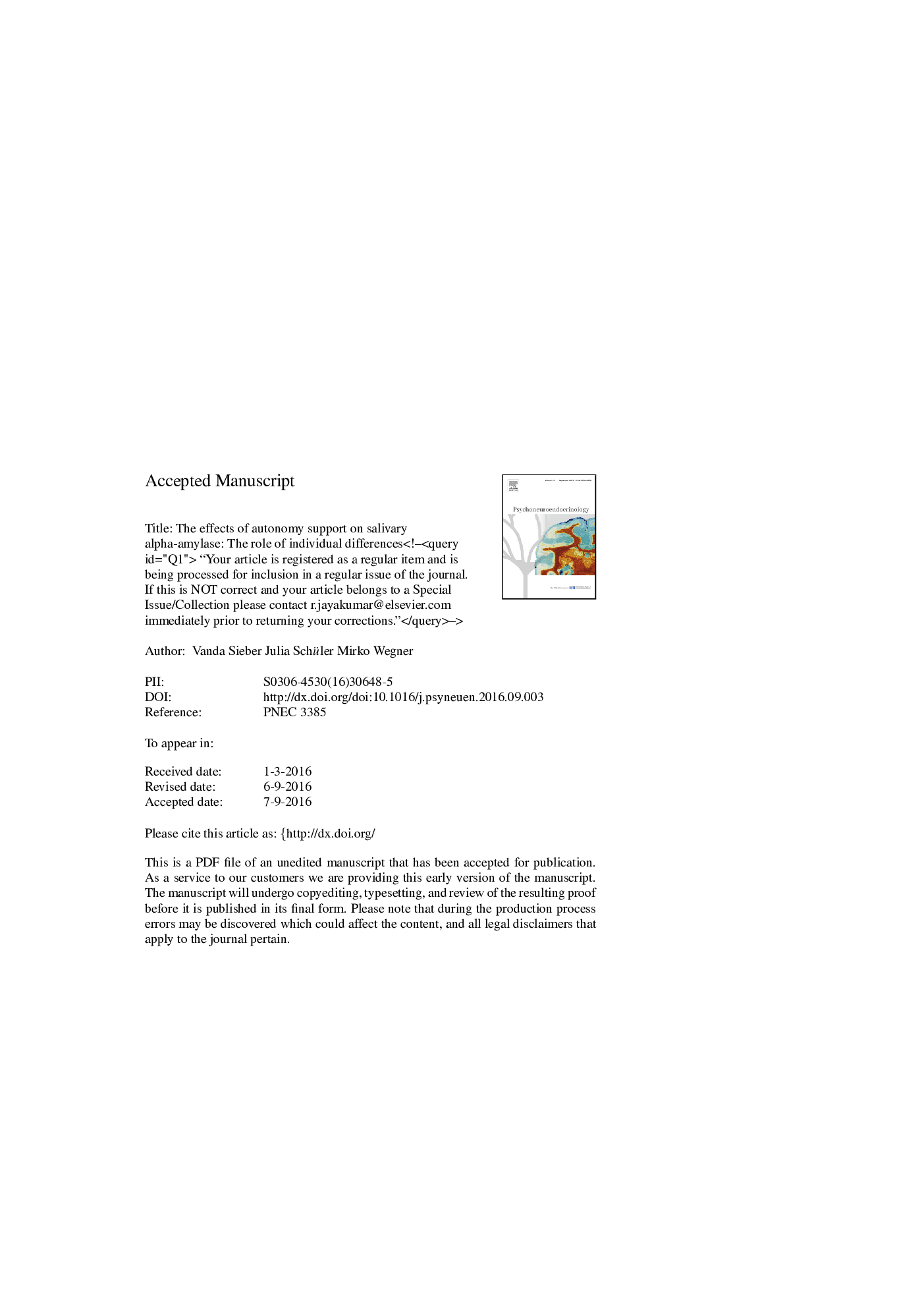| Article ID | Journal | Published Year | Pages | File Type |
|---|---|---|---|---|
| 4934639 | Psychoneuroendocrinology | 2016 | 20 Pages |
Abstract
The empirical evidence for the relationship between autonomy-supportive environments and physiological stress is inconsistent. Whereas some studies report a decrease in stress in autonomy-supportive environments, other studies show a negative effect of autonomy on physiological stress. As previous research has not considered individual differences within this relationship, the present research aims to close this empirical gap by proposing that an implicit autonomy disposition, which is defined as a dispositional preference for self-determination, serves as a moderator. In an experiment, we tested whether the autonomy disposition moderates the effect of different teaching styles (controlling, autonomy-supportive, and neutral) on the acute physiological stress response (salivary alpha-amylase) in adolescents (NÂ =Â 69). The study revealed that participants with a high implicit autonomy disposition displayed lower salivary alpha-amylase responses when exposed to autonomy-supportive vignettes compared to when they were exposed to controlling or neutral teaching styles. The opposite pattern was found in students with a low implicit autonomy disposition. The results illustrate that experimentally induced variations in autonomy support lead to different physiological stress responses, depending on individual differences in the implicit autonomy disposition.
Related Topics
Life Sciences
Biochemistry, Genetics and Molecular Biology
Endocrinology
Authors
Vanda Sieber, Julia Schüler, Mirko Wegner,
